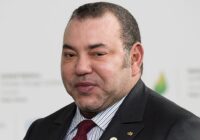Commentators from major news outlets have commented that Morocco will be among the first Arab countries to normalize relations with Israel and exchange ambassadors following the Israeli–Emirati agreement. As the former US ambassador to Morocco and having closely followed the policies and opinions of King Mohammed VI for the past 20 years, I am not so sure that Morocco will be next.
There are two overriding issues to consider in this regard. King Mohammed VI has consistently and strongly supported a peace agreement between Israel and Palestine, and he may see a Moroccan agreement with Israel as damaging to such prospects. Also, the timing to act now, during an election year in the US, may be a deterrent for Morocco to move too hastily.
Israel-UAE Deal: Arab States Are Tired of Waiting on Palestine
The king has made his viewpoint clear over the past two decades with regard to Palestine and used his position as chairman of the Al-Quds (Jerusalem) Committee of the Organization of Islamic Conference (OIC) to assert strong support for a Palestinian state. At the same time, he has expressed his support for warm and full relations with Israel and seems perfectly situated as the next peace partner with Israel, given the fact that Moroccans are the second largest ethnic group in Israel, after Russians.
Such a move, however, will have to be balanced with the statements that King Mohammed VI has constantly committed to over the years in his support for Palestine. In November 2019, he warned that “the continuing Israeli practices in violation of international legitimacy and international humanitarian law in the occupied Palestinian territories fuel tension, violence, instability and sow the seeds of religious conflict and hatred,” The North Africa Post reports. Following the king’s comments, Moroccan diplomats reaffirmed Morocco’s steadfast and unwavering support for Palestine.
In February of this year, a message from King Mohammed VI conveyed to the Palestinian leader, Mahmoud Abbas, by Moroccan Foreign Minister Nasser Bourita reaffirmed Morocco’s unwavering support to the Palestinian cause. The number of times the king has reiterated his support for Palestine during the past is too numerous to repeat here.
Since the days of King Hassan II — the reigning monarch’s father — Moroccans have been encouraged to give to the poor in Palestine and have inspired a Moroccan population deeply supportive of a Palestinian homeland. King Mohammed VI would have a hefty price to pay if he went back on his word and didn’t first extract meaningful concessions for the Palestinians before signing any agreement with Israel.
Remember also that the king opposed Gulf countries’ pressure on Morocco to support their sanction of Qatar in 2017 and he suspended Morocco’s participation in the war in Yemen in 2019. Such stands took courage for a country so dependent on economic development from the Gulf. Analysts who predict that Morocco will be next to sign a peace accord with Israel may not understand the strength of King Mohammed’s moral compass.
Partisanship
The other consideration of Morocco to normalize relations with Israel is timing. There’s a joke in Morocco that says, “I’m not sure who the next US president will be, but I do know who the king’s best friend will be.” Morocco has always avoided partisan gestures during US election cycles dating back to the time when, in 1777, Sultan Mohammed III recognized the independence of the US. Morocco was the first country in the world to officially recognize the United States and was among the first countries to sign a treaty of peace and friendship between the two nations. Every monarch since has been careful to avoid the appearance of taking sides in US politics.
Morocco understands that if it is not early to the peace party, the country will have less to gain from it. The king will have to balance that notion with his moral authority and long-held beliefs — and those of his citizens — to remain steadfast in support of a Palestinian state, as well as considering US election year timing.
There are obvious reasons for Morocco to move quickly toward normalization given cultural and family ties with Israelis of Moroccan descent. For these and other reasons, many Morocco watchers believe that when the right concessions are made that include a serious negotiation between the parties that include a contiguous state of Palestine, based upon the 1967 borders, with Jerusalem as a capital of both Israel and Palestine — and when Morocco is not playing into election-year politics — the king will move swiftly to normalize relations.
Many Moroccan and Israeli citizens already know through their cultural and family ties that when that day arrives, their new relationship will be a peaceful, warm and genuine one.
*[This article was originally published by Morocco on the Move.]
The views expressed in this article are the author’s own and do not necessarily reflect Fair Observer’s editorial policy.
Support Fair Observer
We rely on your support for our independence, diversity and quality.
For more than 10 years, Fair Observer has been free, fair and independent. No billionaire owns us, no advertisers control us. We are a reader-supported nonprofit. Unlike many other publications, we keep our content free for readers regardless of where they live or whether they can afford to pay. We have no paywalls and no ads.
In the post-truth era of fake news, echo chambers and filter bubbles, we publish a plurality of perspectives from around the world. Anyone can publish with us, but everyone goes through a rigorous editorial process. So, you get fact-checked, well-reasoned content instead of noise.
We publish 2,500+ voices from 90+ countries. We also conduct education and training programs
on subjects ranging from digital media and journalism to writing and critical thinking. This
doesn’t come cheap. Servers, editors, trainers and web developers cost
money.
Please consider supporting us on a regular basis as a recurring donor or a
sustaining member.
Will you support FO’s journalism?
We rely on your support for our independence, diversity and quality.






